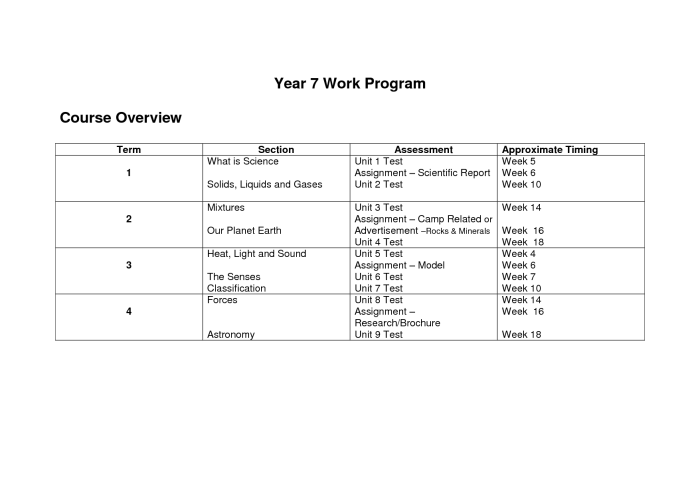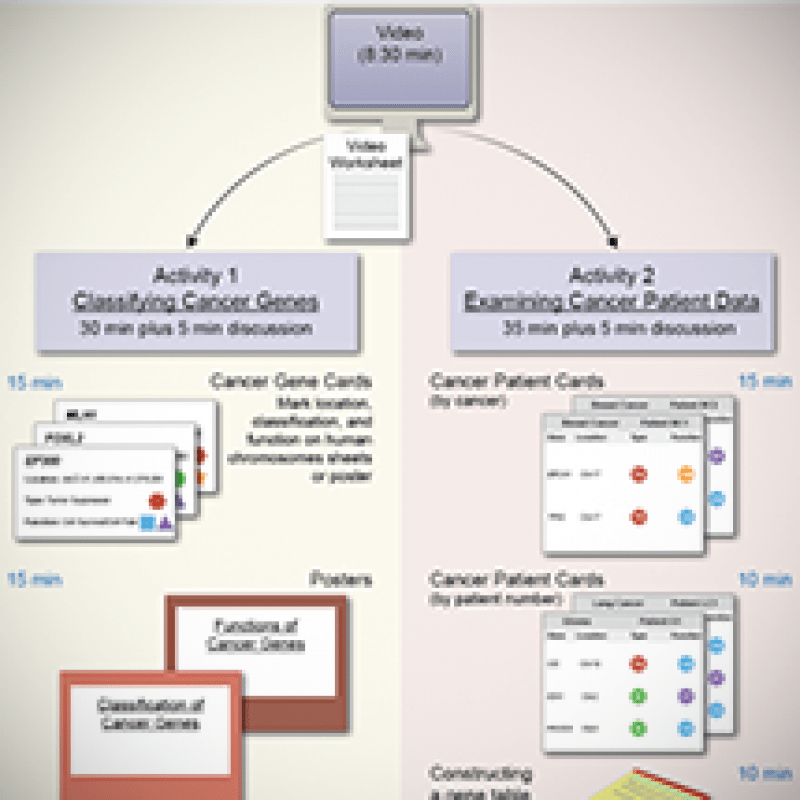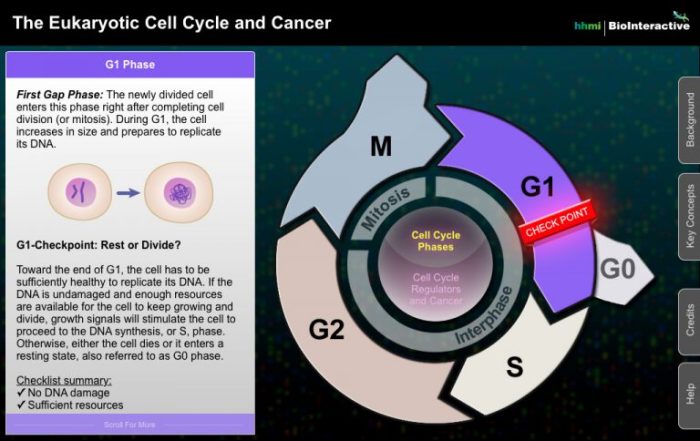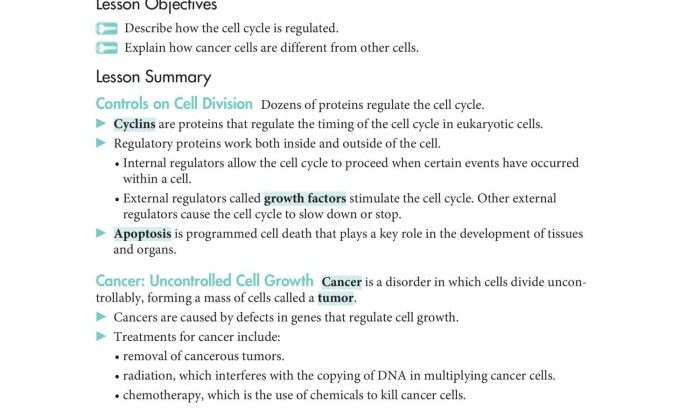The eukaryotic cell cycle and cancer in depth answer key offers a comprehensive understanding of the fundamental processes that govern cell growth, division, and the development of cancerous cells. This guide delves into the intricacies of the eukaryotic cell cycle, exploring its stages, checkpoints, and regulation.
It further examines the causes, types, and molecular mechanisms underlying cancer, highlighting the disruption of the cell cycle in cancer cells. This in-depth exploration provides valuable insights for researchers, students, and healthcare professionals seeking a deeper understanding of these complex biological phenomena.
The content of the second paragraph that provides descriptive and clear information about the topic
The Eukaryotic Cell Cycle

The eukaryotic cell cycle is the process by which a eukaryotic cell grows and divides. It is divided into four phases: G1, S, G2, and M. During the G1 phase, the cell grows and prepares for DNA replication. During the S phase, the cell’s DNA is replicated.
During the G2 phase, the cell checks for errors in DNA replication and prepares for mitosis. During the M phase, the cell divides into two daughter cells.
Checkpoints in the Eukaryotic Cell Cycle
The eukaryotic cell cycle is regulated by a number of checkpoints. These checkpoints ensure that the cell does not proceed to the next phase of the cell cycle until the previous phase has been completed successfully. The checkpoints are located at the end of the G1, S, and G2 phases.
Regulation of the Eukaryotic Cell Cycle, The eukaryotic cell cycle and cancer in depth answer key
The eukaryotic cell cycle is regulated by a number of proteins. These proteins include cyclins, cyclin-dependent kinases (CDKs), and checkpoint proteins. Cyclins and CDKs are responsible for driving the cell cycle forward. Checkpoint proteins are responsible for stopping the cell cycle if there is a problem.
Cancer
Cancer is a disease characterized by the uncontrolled growth and spread of abnormal cells. Cancer cells can arise from any type of cell in the body. Cancer is the leading cause of death worldwide.
Causes of Cancer
The causes of cancer are complex and not fully understood. However, there are a number of risk factors that have been linked to cancer, including:
- Tobacco use
- Obesity
- Poor diet
- Lack of physical activity
- Exposure to certain chemicals and radiation
- Family history of cancer
Types of Cancer
There are many different types of cancer. Some of the most common types of cancer include:
- Lung cancer
- Breast cancer
- Prostate cancer
- Colorectal cancer
- Skin cancer
The Eukaryotic Cell Cycle and Cancer

The eukaryotic cell cycle is disrupted in cancer cells. Cancer cells often have mutations in the genes that regulate the cell cycle. These mutations can lead to the uncontrolled growth and spread of cancer cells.
Role of Cell Cycle Checkpoints in Cancer Development
Cell cycle checkpoints play an important role in cancer development. Mutations in checkpoint proteins can lead to the development of cancer. For example, mutations in the p53 protein, which is a checkpoint protein that stops the cell cycle if there is DNA damage, can lead to the development of cancer.
Molecular Mechanisms that Drive Cancer Cell Proliferation
Cancer cells proliferate rapidly due to a number of molecular mechanisms. These mechanisms include:
- Overexpression of oncogenes
- Inactivation of tumor suppressor genes
- Dysregulation of cell cycle checkpoints
- Angiogenesis
Treatment of Cancer

There are a number of different treatment options for cancer. The type of treatment that is used depends on the type of cancer, the stage of the cancer, and the patient’s overall health.
Mechanisms of Action of Different Cancer Treatments
The mechanisms of action of different cancer treatments vary depending on the type of treatment. Some of the most common types of cancer treatments include:
- Surgery
- Radiation therapy
- Chemotherapy
- Targeted therapy
- Immunotherapy
Challenges in Treating Cancer
There are a number of challenges in treating cancer. These challenges include:
- Cancer cells can be resistant to treatment
- Cancer cells can spread to other parts of the body
- Cancer treatments can have side effects
FAQ Guide: The Eukaryotic Cell Cycle And Cancer In Depth Answer Key
What are the key stages of the eukaryotic cell cycle?
The eukaryotic cell cycle consists of four main stages: interphase (G1, S, G2), and mitosis (M).
How do cell cycle checkpoints contribute to cancer development?
Cell cycle checkpoints monitor the cell cycle and ensure that DNA replication and cell division occur accurately. Defects in these checkpoints can lead to the accumulation of genetic mutations and uncontrolled cell growth, contributing to cancer development.
What are the molecular mechanisms that drive cancer cell proliferation?
Cancer cells often exhibit dysregulation of cell cycle regulators, such as cyclins and cyclin-dependent kinases, which can lead to uncontrolled cell proliferation.
